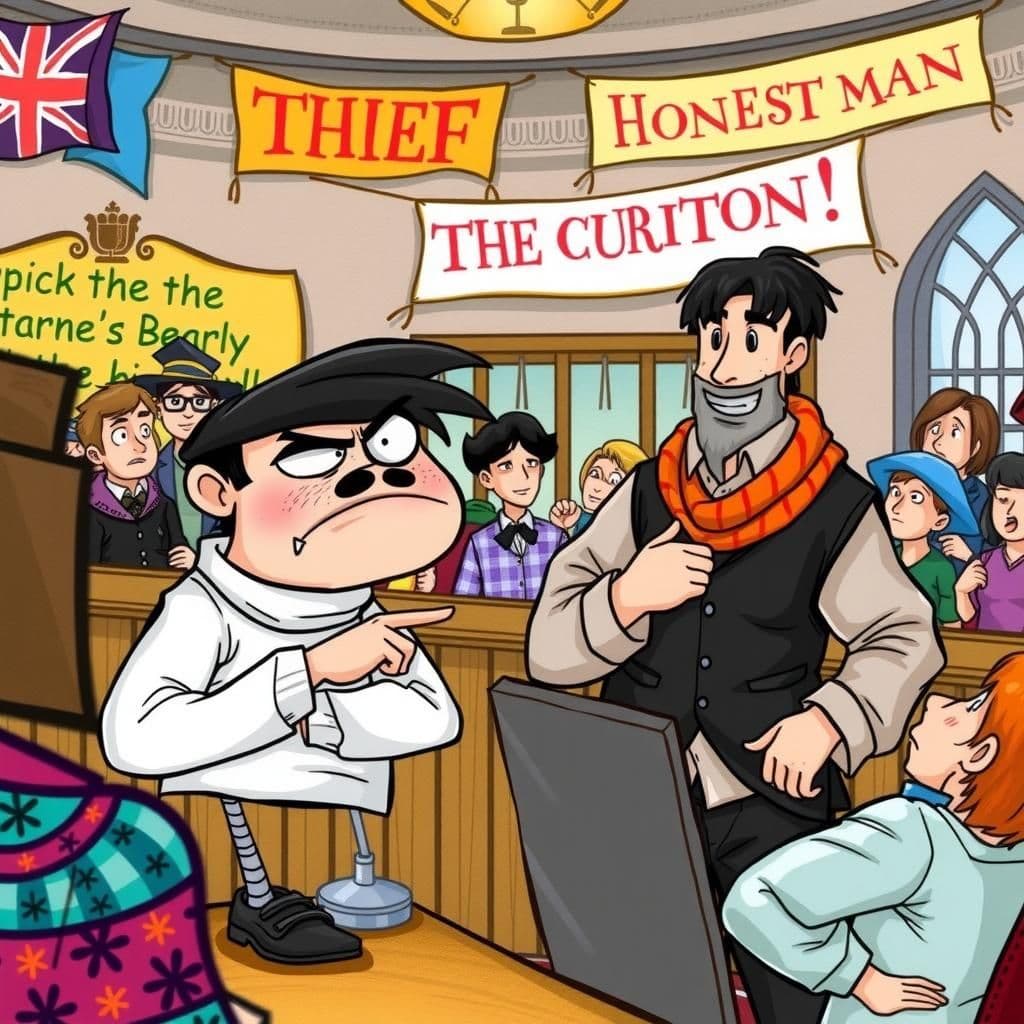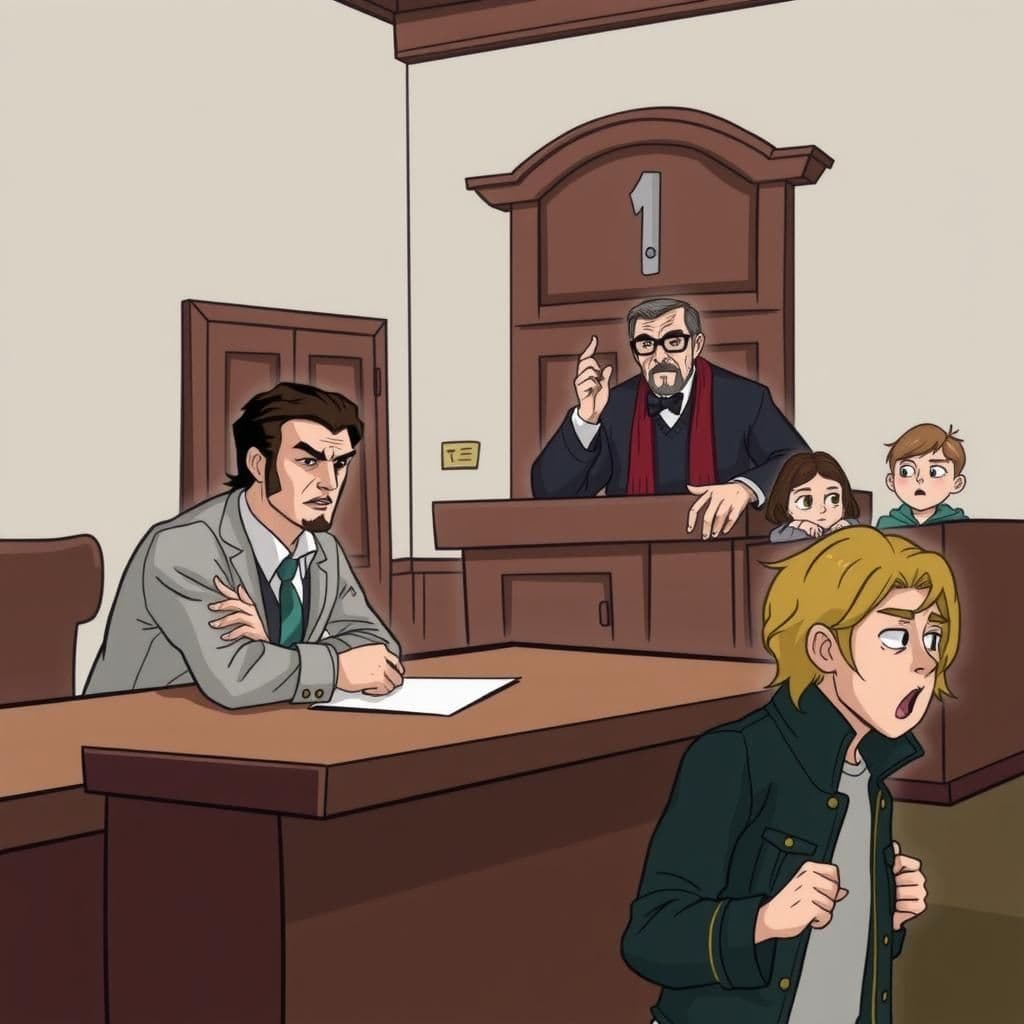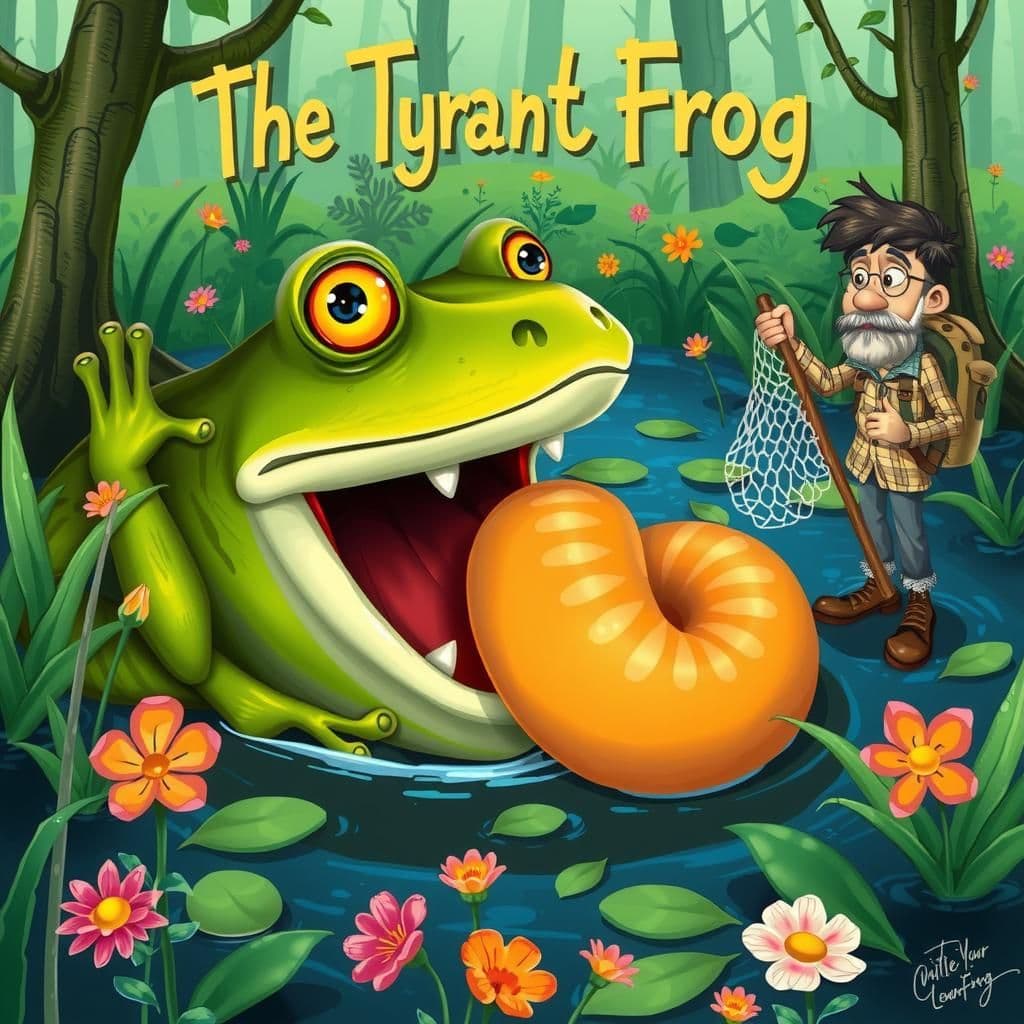The Thief and the Honest Man

Story Summary
In the wisdom-packed moral story "The Thief and the Honest Man," a thief sues his accomplices for his share of stolen goods from an Honest Man, who cleverly evades the trial by claiming he is merely an agent for other honest individuals. When served with a subpoena, the Honest Man amusingly distracts himself by pretending to pick his own pockets, illustrating the lessons learned from stories about accountability and cleverness in the face of adversity. This short story with a moral leaves readers pondering the complexities of honesty and complicity in wrongdoing.
The Thief and the Honest Man
Once, a thief decided to take legal action against his accomplices, seeking to recover his share of the loot they had stolen from an Honest Man. As part of his case, he insisted that the Honest Man come to court to testify about the loss he had suffered.
However, the Honest Man explained that his involvement was minimal; he was merely the agent for a group of other honest men, and therefore, it was not his concern to attend the trial. When the court officers arrived to serve him with a subpoena, he cleverly concealed himself, avoiding their attempts to summon him.
As he hid away, he passed the time during the long hours of inactivity by amusing himself with a rather peculiar pastime—picking his own pockets. In this way, he managed to divert his attention from the troubles that surrounded him, all while remaining blissfully detached from the thief's predicament.
Click to reveal the moral of the story
The moral of the story is that one cannot expect justice or accountability from those who are dishonest or indifferent to the plight of others.
Historical Context
This story reflects themes of morality and justice found in fables and folklore, where the concepts of honesty and deception are explored through exaggerated characters and situations. It bears resemblance to Aesop's Fables, particularly in its use of ironic humor to critique societal norms and the absurdity of legal and moral issues, illustrating how the lines between right and wrong can blur in the pursuit of self-interest. The narrative echoes a long tradition of satire in literature, where the follies of human nature are laid bare, encouraging reflection on ethical dilemmas and the complexities of accountability.
Our Editors Opinion
This fable highlights the absurdity of seeking justice in a system that rewards dishonesty while ignoring the plight of the honest. In modern life, this is reflected in situations where individuals or corporations exploit loopholes to gain an unfair advantage, while the genuine victims of their actions are left without recourse. For instance, a whistleblower may expose unethical practices within a company, only to find themselves sidelined and ignored, as the organization protects its own interests instead of addressing the wrongdoing.
You May Also Like

The Tried Assassin
In "The Tried Assassin," a courtroom drama unfolds as an assassin stands trial in a New England court. His counsel argues for dismissal based on a previous acquittal in California, invoking the principle of "once in jeopardy." However, the judge denies the motion, stating that an assassin is not considered to be in jeopardy when tried in California, allowing the trial to proceed—a reflection of the complexities found in popular moral stories and animal stories with moral lessons.

The Salt Merchant and His Ass
In this quick moral story, a peddler's Ass attempts to lighten its load of salt by intentionally falling into a stream, but the clever peddler sees through this trick and replaces the salt with sponges. When the Ass falls again, the sponges absorb water, resulting in a double burden instead of relief. This folklore teaches a meaningful lesson on the consequences of deceit in life-changing stories with moral implications for students.

The Tyrant Frog
In "The Tyrant Frog," a clever fable with a moral, a snake being swallowed by a frog pleads for help from a passing naturalist, who misinterprets the situation as a simple dining scenario. The naturalist, more focused on acquiring a snakeskin for his collection, highlights the importance of understanding context before jumping to conclusions. This easy small story serves as a valuable lesson in awareness and perspective, making it a fitting addition to short story collections with moral themes for personal growth.
Other names for this story
"Justice Unmasked, The Honest Witness, Shadows of Deceit, The Suit of Thieves, Trial of Truth, The Accomplice's Claim, The Hidden Honest Man, Theft and Testimony"
Did You Know?
This story highlights the irony of morality, where the "Honest Man" chooses to disengage from the situation, prioritizing his own comfort over justice, while the thief seeks legal recourse for his wrongdoing, underscoring the absurdities of ethical dilemmas in human behavior.
Subscribe to Daily Stories
Get a new moral story in your inbox every day.